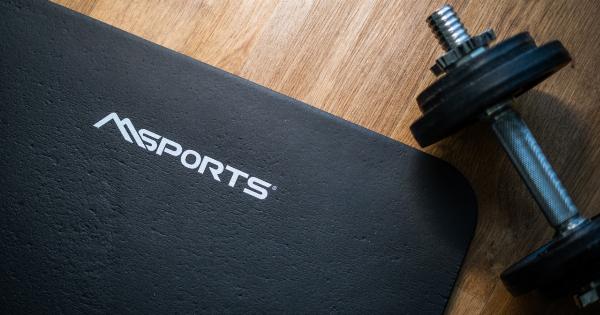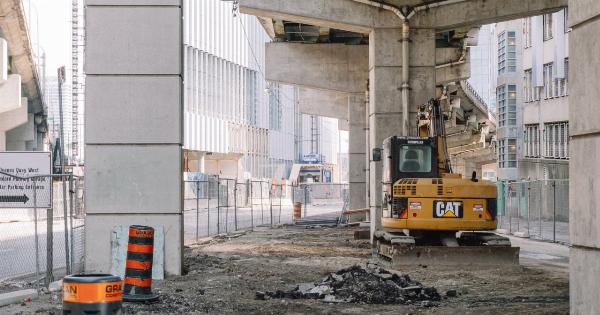Hemorrhoids, also known as piles, are swollen and inflamed veins in the lower rectum and anus. They can be extremely uncomfortable and painful, and often lead to itching, bleeding, and discomfort during bowel movements.
While hemorrhoids are a common condition, there are several steps you can take to prevent flare-ups and minimize their impact on your daily life. In this article, we will explore some effective strategies for avoiding hemorrhoid flare-ups.
Eat a High-Fiber Diet
A diet rich in fiber is essential for maintaining regular bowel movements and preventing constipation, which is a major contributing factor to hemorrhoid development.
Make sure to include plenty of fruits, vegetables, whole grains, and legumes in your daily meals. Fiber adds bulk to the stool, making it easier to pass without straining.
Stay Hydrated
Drinking an adequate amount of water is crucial for the proper functioning of your digestive system. Water helps soften the stool, preventing constipation and reducing the risk of hemorrhoids.
Aim to drink at least 8 glasses of water or other non-caffeinated fluids each day.
Avoid Straining During Bowel Movements
Straining during bowel movements puts unnecessary pressure on the veins in the rectum and anus, increasing the likelihood of hemorrhoid flare-ups.
To prevent straining, it’s important to establish healthy bathroom habits such as not delaying bowel movements when you feel the urge, and not sitting on the toilet for extended periods of time. If needed, use a stool softener or fiber supplement to make passing stools easier.
Exercise Regularly
Sedentary lifestyle and lack of physical activity can contribute to the development of hemorrhoids. Engaging in regular exercise, such as walking, swimming, or yoga, can help improve blood circulation and prevent constipation.
Aim for at least 30 minutes of moderate-intensity exercise most days of the week.
Avoid Prolonged Sitting or Standing
Sitting or standing for extended periods of time can put pressure on the veins in the rectum, increasing the risk of hemorrhoid flare-ups. If your job requires long hours of sitting or standing, try to take regular breaks to move around and stretch.
Whenever possible, utilize ergonomic seating and alternate between sitting and standing throughout the day.
Practice Good Hygiene
Maintaining good hygiene in the anal area is vital for preventing irritation and infection, which can exacerbate hemorrhoids. After bowel movements, gently clean the area with unscented, alcohol-free wipes or moistened toilet paper.
Avoid using harsh or perfumed soaps, as they can irritate the skin. After cleansing, pat the area dry rather than rubbing.
Avoid Straining During Lifting
Lifting heavy objects with improper technique can strain the muscles and increase pressure on the veins in the rectum. To prevent hemorrhoid flare-ups while lifting, remember to bend at the knees and use your leg muscles rather than straining your back.
If the object is too heavy, don’t hesitate to ask for assistance.
Don’t Ignore the Urge to Defecate
Ignoring the urge to defecate can lead to constipation and straining during bowel movements, increasing the risk of hemorrhoids.
Whenever you feel the urge, try to find a bathroom as soon as possible to avoid unnecessary pressure and strain on the rectal area.
Avoid Prolonged Sitting on the Toilet
Sitting on the toilet for excessive periods can cause blood to pool in the veins of the rectum and increase the risk of hemorrhoid flare-ups.
To prevent this, limit your time on the toilet to 5-10 minutes and avoid engaging in activities, such as reading, that may extend your bathroom time.
Wear Loose-Fitting Clothing
Tight clothing, especially around the waist and pelvic area, can restrict blood flow and contribute to the development of hemorrhoids. Opt for loose-fitting clothing made from breathable fabrics to allow for proper airflow and circulation.
Conclusion
Hemorrhoid flare-ups can be painful and disruptive, but by following a few simple strategies, you can minimize their occurrence and alleviate discomfort.
Remember to maintain a high-fiber diet, stay hydrated, avoid straining during bowel movements, engage in regular exercise, practice good hygiene, and make healthy lifestyle choices such as avoiding prolonged sitting or standing. By implementing these preventive measures, you can take control of your hemorrhoid health and enjoy a higher quality of life.





























